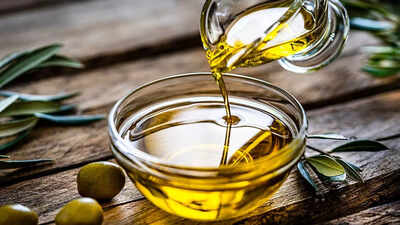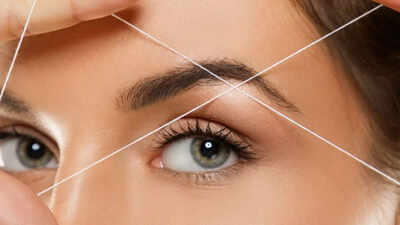Tired of feeling sluggish or constantly battling breakouts? A no-oil diet might just be your skin and gut’s new best friend. As the name suggests, a no-oil diet eliminates added fats like refined oils from daily meals, relying instead on natural fats found in nuts, seeds, and whole foods. It’s not just a weight loss fad, many nutritionists support the idea for its detoxifying, anti-inflammatory, and heart-friendly benefits. From clearer skin to better digestion and even reduced cravings, going oil-free can be a simple but transformative step. Here are six science-backed benefits of a no-oil diet and why more people are switching their frying pans for steamers and air-fryers.
Weight loss becomes easier on a no-oil diet
Oil is calorie-dense, just one tablespoon packs around 120 calories. That adds up fast, especially in Indian cooking where oils often coat every dish. By cutting oil, you significantly reduce daily calorie intake without feeling deprived. Instead of deep-fried snacks or curries floating in ghee, oil-free meals like steamed dals, grilled veggies, and dry-roasted chapatis allow your body to burn fat more efficiently.Many people on no-oil diets report visible inch loss and lighter digestion in just a few weeks. Bonus: you can still eat flavourful food by using spices, herbs, and natural moisture from vegetables.
A no-oil diet helps improve skin clarity and reduce acne
Excess oil in your diet can lead to clogged pores and increased sebum production, a known trigger for acne. A no-oil diet, rich in whole grains, vegetables, and fruits, reduces inflammation and oxidative stress in the body. When your liver isn’t overworked by processing fried or greasy food, it’s better able to detoxify your system, showing up as healthier, clearer skin. Hydrating oil-free meals also support better water retention in the skin, which improves glow and texture over time.
No-oil diets promote better heart health

Oils, especially refined vegetable oils, are often high in omega-6 fats that can throw off your body’s fat balance and promote inflammation. Cutting down on them supports better heart function. Studies have shown that low-fat, plant-based diets can reduce cholesterol levels, lower blood pressure, and improve overall vascular health. With no added oils, arteries stay cleaner and more flexible, reducing the risk of heart disease, especially in genetically predisposed individuals.
Improved digestion and less bloating with a no-oil diet
Oil slows down digestion and can cause bloating or heaviness, particularly after rich meals. A no-oil diet helps food move more smoothly through the digestive tract. By eliminating greasy foods, you ease the burden on your stomach, pancreas, and liver. Oil-free khichdi, sabzi, or sambar, for instance, feel lighter and are easier to digest, making this diet a great choice for those with acid reflux, IBS, or sluggish bowels. Over time, it may even improve your gut microbiome.
A no-oil diet may stabilise energy and reduce cravings
Oily, fried foods tend to spike blood sugar levels and trigger cravings, especially for sugar or salt. When you cut out oil and eat high-fibre, whole-food meals instead, your blood sugar stays more stable throughout the day. This means fewer mood swings, less fatigue after meals, and a noticeable reduction in late-night snacking. Many people report sustained energy levels and fewer emotional eating episodes after switching to oil-free meals.
It encourages mindful eating and better cooking habits
Let’s be honest, when we can’t lean on oil for flavour or texture, we’re forced to get creative. No-oil diets push you to rediscover spices, herbs, natural sweetness, and umami through ingredients like tamarind, ginger, mint, or roasted spices. You become more conscious of what’s going into your food. It also shifts your cooking style, steaming, grilling, baking, and boiling become your go-to methods, making meals healthier overall. Over time, this not only improves health but deepens your connection to food.A no-oil diet isn’t about punishing your taste buds, it’s about resetting your health and relying on real, wholesome ingredients. While oils have their place in moderation, going oil-free even for a few weeks can offer your body a refreshing detox and visible results, inside and out. Just remember to include healthy fats from whole sources like nuts, seeds, or avocados to stay balanced.Also read| Moong dal chilla vs idli: Which one actually helps you lose weight faster






